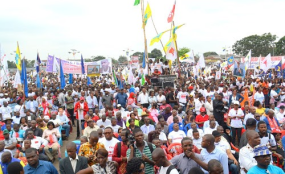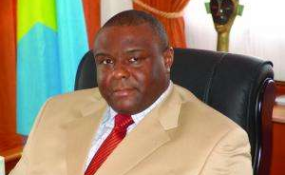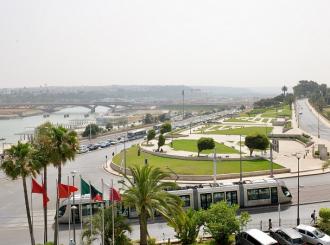ANALYSIS
While a trendy priority for new oil producers, sovereign wealth funds can easily be manipulated if their internal governance and oversight are not strong enough.
The Libyan Investment Authority (LIA) has taken two international banks to courtseeking to recover over $3.3 billion (11 trillion shillings) that the oil-producing country lost in 'bad deals' that were initiated by the banks during former President Muammar Gaddafi's reign.
LIA is attempting to recover $1.2 billion (about 4 trillion shillings) from a U.S investment bank, Goldman Sachs and another $2.1 billion (almost 7 trillion shillings) from French bank, Societe Generale. The country's Sovereign Wealth Fund alleges that the two banks advised it to enter risky deals in 2008 that ended up being worthless. The hearing of one of the cases resumed in London in June 2016, with LIA's lawyers accusing Goldman Sachs executives of taking its officials on luxurious trips to Morocco and Dubai in order to influence their investment decisions. One witness in court claimed that the trips were laden with 'heavy drinking and girls'.
Key in the case is Goldman Sach's relationship with Haitem Zarti, a brother to Mustafa Zarti who was LIA's second-in-command at the time. The bank is said to have paid for Zarti's lavish trip to Dubai and later offered him an internship placement at their headquarters in New York. The Fund's lawyers now argue that the Bank's treatment of Haitem Zarti biased his brother to stake the fortunes of the $67 billion Fund in a series of bad deals.
Happier times: Late Col. Gaddafi's son, Saif-Al-Islam Gaddafi.
The second case against Societe Generale is expected to commence in early 2017 but there are indications that the Fund's lawyers will attempt to link the bad deals to bribery and influence peddling involving the first family, particularly Gaddafi's son, Saif Gaddafi.
But what made Libya's Sovereign Wealth Fund so susceptible to manipulation? During Col. Muammar Gaddafi's four decade reign, opacity dominated management of the country's Petroleum Fund, allowing unchecked corruption to thrive. Patronage, family links and political influence were much more important than institutionalised, competence-based investment decision making. Hence, the Fund was often manipulated into investing billions of US dollars in risky assets managed by political friends or allies of the regime. Transparency, independent oversight, clarity of rules and political will eluded Libya, resulting in mismanagement of the resources and potentially causing avoidable losses that form the basis of the cases in court today.
The Libyan case provides a good example of how Sovereign Wealth Funds can be vulnerable to abuse by overbearing governments, unless they have strong, independent governance structures and sufficient corruption control mechanisms. For Uganda, the case comes at an opportune time, since the country is operationalizing the Petroleum Fund as established by The Public Finance Management Act, 2015(PFMA). In some ways, the law attempts to address key issues necessary to ensure good governance of revenues expected from Uganda's nascent oil and gas sector.
However, a number of loopholes exist in the law which, if not addressed, would expose Uganda to the perils Libya has witnessed. Unless regulations for the Act, once issued, offer more clarity, Uganda's Petroleum Fund could end up like that of Libya.
Firstly, reading through that Act, it is not clear what the objectives of the Petroleum Fund are. While the Act alludes to the Fund helping to support budget stability [Section 58 (a) and Section 63 (2)] as well as providing heritage for future generations [Section 64 (3) & (4)], neither of these is clearly stated as its objective. This lack of clarity of objectives presents difficulty for policy makers in terms of giving policy direction in form of operational rules for the fund. It also remains difficult to decide the sort of assets the savings can be invested in and therefore the nature of restrictions that should be put in place for government to access the Fund.
If, on one hand, the Fund is to play a stabilising role, a significant chunk of the money should be invested in liquid assets that can easily be accessed in case of budget shortfalls, like bonds. On the other hand, if the Fund is to serve as a heritage for future generations, restrictions for accessing it have to be made tighter, for example by requiring that the money be invested in long term assets like real estate. Where the Fund has a dual function, this should also be clearly stipulated in law or the regulations.
Secondly, the PFMA presents a possibility of conflict of powers between the Minister of Finance and Bank of Uganda or an external Fund Manager appointed by the Bank over the choice of investments into which the Fund's money may be committed. Whereas section 63 (2) (C) gives power to the Minister to prescribe an instrument into which the Fund's finances may be invested, section 64 (1) vests operational management responsibilities in the Bank of Uganda. Again, Section (64) (6) also leaves it to Bank of Uganda to establish risk management arrangements for the instruments to be used in the management of funds in the Petroleum Investment Reserve. This could result in conflict in the case of Bank of Uganda rejecting an instrument prescribed by the Minister for investment of the Fund's money, even if that may have been done on a technically sound basis.
In addition, the Act falls short of clarifying, in terms of jurisdiction, where funds in the Petroleum Revenue Investment Reserve shall be invested. Although Section 63(2) mentions that the money shall be invested in internationally convertible currency deposit or a debt instrument denominated in internationally convertible currency, it remains silent on whether these investments are to be made in the domestic economy or abroad. Different lessons from the Management of the Government Pension Fund of Norway show that investing petroleum revenues abroad protects domestic industries (and economy), diversifies risk and maximises returns.
However, the choice of that 'international investment' and how the decision to invest in it is made, are very crucial and that is where the Libyans got it wrong. They now claim that they were hoodwinked by street smart bank executives to invest in risky ventures that resulted in billions of dollars in losses.
Yet the Fund should have had their own professional advisors to assess the risks and decide accordingly. In any case, Norway invests the bulk of monies in her Fund in stock markets in the USA. However, because of a more streamlined investment decision making mechanism, when Norway lost hundreds of millions of dollars in the 2008 economic downturn, it was easier to attribute the losses to the global economic downturn and not mismanagement. Uganda should, therefore, consider investing in more developed financial markets abroad to secure the best returns and protect her economy against over-heating, while ensuring that independent investment decision making procedures are followed.
However, Uganda's PFMA (2015) lacks provision for independent third party oversight over the Fund's operations, a cardinal principal in ensuring transparency and accountability in the way funds are managed. Third party oversight is critical in exerting public pressure on policy makers and fund managers to ensure open decision making as a guarantee for integrity in the way natural resource funds are managed.
In Ghana, the Public Interest and Accountability Committee's (PIAC) May 2012 report revealed that the Ghana National Petroleum Company (GNPC) was retaining large amounts of petroleum revenues that threatened to grow the petroleum sector at the expense of other sectors. The report also revealed that the Ministry of Finance had overestimated corporate income taxes by nearly 100 percent in order to create extra fiscal space for government and legitimise greater spending under the country's laws.
Although Ghana's PIAC has been constrained by lack of funds and mandate to implement its recommendations, its experience underscores the need for Uganda to ensure third party oversight if our revenues are to be managed in a transparent manner.
Globally, Norway offers the best lessons given that they have been exemplary in running their extractives sector. Several similar funds around the world have been successful as well. It is estimated that worldwide, sovereign wealth funds hold assets in excess of three trillion dollars. Information on some of the natural resource funds globally is shown in the table below:
Country Fund name Year established Estimated value of assets
Norway Government Pension Fund Global 1990 $850 billion
Saudi Arabia SAMA Foreign Holdings 1952 $730 billion
Public Investment Fund 1971 $5.3 billion
Abu Dhabi (UAE) Abu Dhabi Investment Authority 1976 $773 billion
International Petroleum Investment Authority 1984 $68.4 billion
Mubadala Development Company 2002 $60.9 billion
Kuwait Kuwait Investment Authority 1953 $400 billion
Qatar Qatar Investment Authority 2005 $175 billion
Russia National Welfare Fund 2004 $87.9 billion
Reserve Fund 2004 $87.3 billion
Algeria Revenue Regulation Fund 2000 $70.9 billion
Dubai (UAE) Investment Corporation of Dubai 2006 $160 billion
Ghana Ghana Heritage Fund 2011 $0.13 billion
Ghana Stabilization Fund 2011 $0.32 billion
Botswana Paula Fund 1994 $5.7 billion
Nigeria Nigeria Sovereign Investment Authority 2011 $0.98 billion
Adapted from Andrew Bauer, 'Managing the public trust: How to make natural resource funds work for citizens', 2014.
Uganda too can join this elite club in a decade or so. However, the politicians need to let the proposed Petroleum Fund function independently and only allow for independent third party oversight over its operations.
Chris Musiime is the Managing Editor, Oil in Uganda while Gerald Byarugaba is a Research Associate, Advocates Coalition for Development & Environment (ACODE) and a 2014 PETRAD Fellow.








